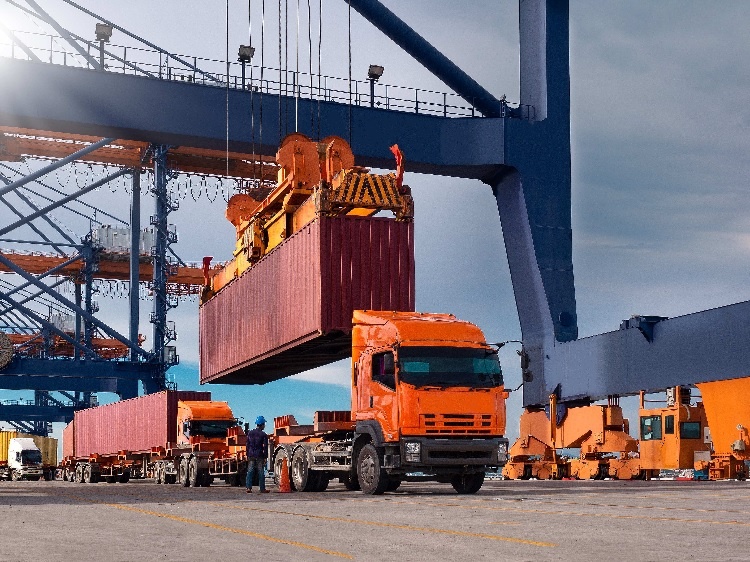Exports struggle to make British dent
 |
| Exports struggle to make British dent, illustration photo |
The Import-Export Department under the Ministry of Industry and Trade (MoIT) last week confirmed that coffee exports to the UK market have been falling sharply. They reached only 34,650 tonnes in 2021, worth $66.16 million and down 35.5 per cent in volume and 31.1 per cent in value compared to 2020. Along with that, Vietnam’s coffee market share in the UK’s total imports fell from 23 to 17 per cent.
The export reality is showing that there are still many problems to be solved for businesses to fully take advantage of incentives found in the UK-Vietnam Free Trade Agreement (UVFTA), which came into effect last year. One year after the implementation of the UVFTA, the extent of opportunities from the agreement seems to depend on the capabilities of businesses.
According to the Vietnam Coffee and Cocoa Association (Vicofa), many large British coffee groups have opened representative offices and joint ventures in Vietnam, such as ED&F Man, Louis Dreyfus, and Armajaro, creating extensive development relationships in the coffee sector. But despite Vietnam joining the World Trade Organization over 15 years ago, coffee market expectations between the two nations have failed to reach potential.
The UK market is highly competitive, with imports from many countries. But Nguyen Viet Hai, vice chairman of Vicofa, said that Vietnamese businesses would still have the opportunity to regain market share in the UK thanks to the UVFTA.
“However, they need to meet the requirements for high-quality and consumption trends of the Brits,” Hai said. “Exporting coffee in raw or semi-processed form is one of the main factors restrictions to the usefulness of the UVFTA’s incentives. The UK taste is also quite different from that of other European countries. Instant coffee is the type of coffee preferred by British consumers, not roasted and ground coffee.”
Like coffee, Vietnam’s wood and timber exports to the UK have also been suffering under the lasting health crisis, container shortages, and increasing freight rates, leaving much to be desired from the enticing incentives of the trade deal.
Do Xuan Lap, chairman of the Vietnam Timber and Forest Products Association said, “Many businesses try to take advantage of the preferential tariffs for exports to the UK.”
Imported wood materials to the United Kingdom are subject to a tax rate of 2-10 per cent while imported wood and timber products are gradually decreasing to zero following the 5-year roadmap of the UVFTA – a factor that promises to promote Vietnamese exports to this market dramatically.
According to the General Department of Customs, in 2021, the export turnover of wood and timber products to the UK market reached $254.44 million, up 14.5 per cent compared to 2020. However, the British market only held 2 per cent of the total export value of Vietnam’s wood industry which reaped a total export value amounted to $15.87 billion last year.
Since the UK left the EU, Lap remains concerned that the British government may not accept the EU’s FLEGT regulations on wood and timber trade under the Voluntary Partnership Agreement that Vietnam has had with the EU since 2019. “So far, there is no such agreement with the UK. If the British government changes its policy on importing wood and timber products, it will certainly have a huge impact on the export activities of Vietnamese enterprises,” Lap said.
Growth in trade in timber and forest products is expected for the whole of 2022 when forecasts are directed towards the UK economy’s recovery. However, the impact of the pandemic and the Russia-Ukraine conflict may cause additional difficulties for Vietnam’s agricultural trade when exporting to the UK, with the latter tightening import policies to protect the domestic market.
A representative of the British distributor of furniture, home décor, and accessories, Gallery Direct Ltd., said, “The procedure for exporting wooden furniture to the UK market will be more and more difficult as importers faced with new regulations, which limits the use of plastic in furniture lining and forces them to use paper materials. The British government hopes to thereby encourage the use of recycled materials moving forward.”
The representative went on to explain that environmental sustainability and traceability would be the prime concerns of the new UK policies. The British government will also accelerate testing wood products to prove the legal origin of the wood, a task that is likely to be performed by the UK consumer right protection
organisations.
What the stars mean:
★ Poor ★ ★ Promising ★★★ Good ★★★★ Very good ★★★★★ Exceptional
Related Contents
Latest News
More News
- Hermes joins Long Thanh cargo terminal development (February 04, 2026 | 15:59)
- SCG enhances production and distribution in Vietnam (February 04, 2026 | 08:00)
- UNIVACCO strengthens Asia expansion with Vietnam facility (February 03, 2026 | 08:00)
- Cai Mep Ha Port project wins approval with $1.95bn investment (February 02, 2026 | 16:17)
- Repositioning Vietnam in Asia’s manufacturing race (February 02, 2026 | 16:00)
- Manufacturing growth remains solid in early 2026 (February 02, 2026 | 15:28)
- Navigating venture capital trends across the continent (February 02, 2026 | 14:00)
- Motivations to achieve high growth (February 02, 2026 | 11:00)
- Capacity and regulations among British areas of expertise in IFCs (February 02, 2026 | 09:09)
- Transition underway in German investment across Vietnam (February 02, 2026 | 08:00)

 Tag:
Tag:




















 Mobile Version
Mobile Version